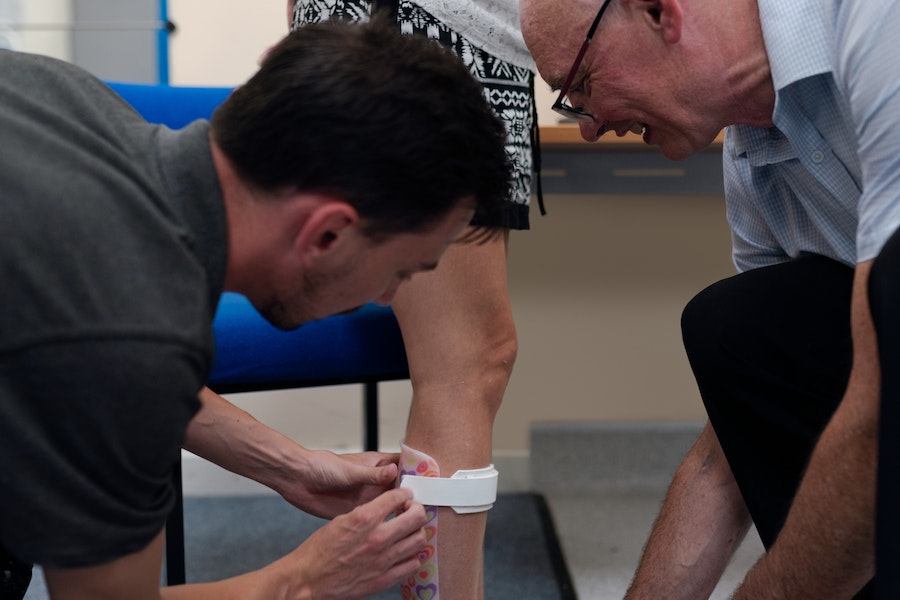Chronic conditions, such as diabetes, heart disease, and arthritis, affect millions worldwide and pose significant challenges to their physical health and overall well-being. Successfully managing these conditions requires a comprehensive approach involving various healthcare aspects, including medical treatment, lifestyle modifications, and emotional support. In this article, we delve into the importance of chronic condition management and highlight how having a friendly physician by your side can make a remarkable difference in effectively coping with these long-term ailments.
By understanding the role of healthcare providers in supporting patients with chronic conditions and fostering a strong patient-physician relationship built on trust and empathy, individuals can confidently navigate their health journey and achieve better outcomes for their ongoing care. In this article, I have mentioned how a friendly physician can help manage chronic conditions much easier. So, check out this article til the end.
The Role of a Friendly Physician in Managing Chronic Conditions
The role of a friendly physician cannot be undervalued when it comes to managing chronic conditions. Chronic illnesses can greatly impact a person’s quality of life, and having a physician who is not only knowledgeable but also approachable can make all the difference. A reliable family physician creates a supportive environment where patients feel comfortable discussing their symptoms, concerns, and treatment options without fear or hesitation.
It allows the physician to comprehensively understand the patient’s condition and tailor an effective treatment plan. Additionally, a friendly demeanor helps ease anxiety and stress that often accompany chronic diseases, promoting better overall well-being.
Building Trust and Open Communication with Patients
Building trust and open communication with patients is essential in effectively managing chronic conditions. A friendly physician is crucial in building trust within the patient-doctor relationship. When patients feel comfortable, and at ease with their healthcare provider, they are more likely to discuss their symptoms, concerns, and treatment options openly.
Therefore, a physician creates an environment where patients feel heard and validated. By actively listening to their patients’ experiences, a doctor can gain valuable insights into the progression of chronic conditions. This empathetic approach allows for a deeper understanding of the patient’s unique needs, enabling the development of tailored treatment plans that address physical symptoms and emotional well-being. Patients who trust their healthcare provider are more likely to follow recommended treatment plans, adhere to medication schedules, and engage in self-care activities.
Personalized Treatment Plans for Long-Term Success
Personalized treatment plans are crucial for long-term success in managing these conditions. A friendly and understanding physician takes the time to get to know their patients personally, allowing them to tailor treatment options to their needs. When it comes to chronic conditions, there is no one-size-fits-all approach. Each patient may have different symptoms, triggers, and responses to various treatments. A friendly physician knows this and works closely with their patients to create tailored treatment plans that address their needs.
This individualized approach helps manage the condition effectively and ensures patients feel heard and understood. Moreover, the friendly physician goes beyond prescribing medications or suggesting lifestyle changes; they build a strong rapport with their patients based on trust and respect.
Emotional Support and Mental Health Care
Emotional support is crucial in managing chronic conditions and maintaining good mental health. A friendly physician who understands the emotional toll of these conditions can provide much-needed comfort and guidance to their patients. Such physicians offer medical expertise and create a safe space for patients to express their fears, frustrations, and concerns.
When facing chronic conditions, individuals often experience various emotions, such as anxiety, depression, and anger. A compassionate physician can help alleviate these feelings by actively listening to their patients’ struggles and providing reassurance. By showing empathy and understanding, they validate the emotions experienced by their patients, making them feel heard and supported. Moreover, he can assist in developing effective coping strategies that are tailored to each patient’s unique circumstances.

